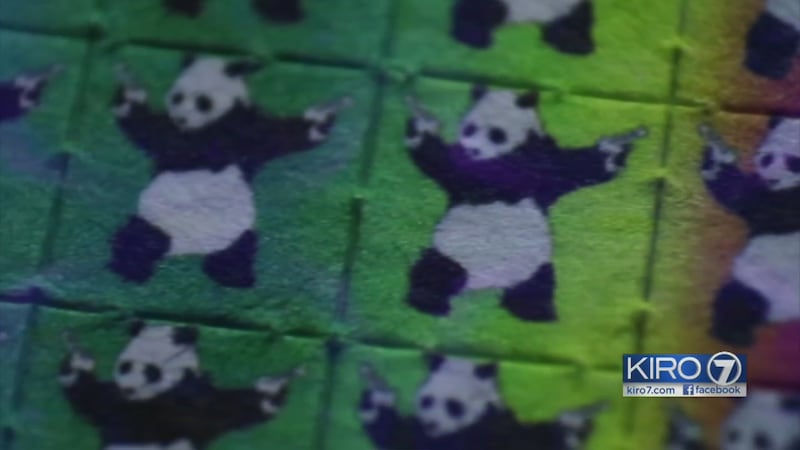LSD and high tech seem like opposites, but KIRO 7 discovered some workers are turning to the drug, which hit a high in popularity in the '60s, to increase their problem-solving ability and creativity.
Instead of a full dose, they're microdosing.
Paul Austin is the founder of the company The Third Wave and calls himself a microdosing coach.
"So microdosing is the act of consuming really low doses of psychedelics, usually on a two-times-per-week basis, for a period of a month or two months," according to Austin.
Austin told KIRO-7 he's done it, by taking 1/10th of a normal dose.
Scroll down to continue reading.
More news from KIRO 7
- Robert Wagner a 'person of interest' in Natalie Wood's death, report says
- Seattle school bus drivers begin strike
- Police: Men use stolen phone to get father to pay ransom
- Police search for suspect in Kent shooting
- Victim of brutal hate crime beating struggling for survival
"I was looking for something that could help with creativity, that could help with entering a flow state, that could help with a process of building my business," said Austin.
He's studying the impacts and making a business of helping others maximize their experience with the controlled substance.
"For creativity, to help with problem-solving, to give them a little more energy. It's kind of to get another extra edge in what they're doing," Austin said
The popularity of LSD microdosing caught the attention of UW psychology professor Jaime Diaz.
Diaz is behavioral pharmacologist and wrote the book "How Drugs Influence Behavior." He's been teaching at UW for 40 years.
"There's the danger that someone's going to take too much LSD," explained Diaz, "You're already in micrograms, and so microdosing LSD is very difficult to do."
Diaz told KIRO-7 he's very interested in the science of what LSD does to the brain.
"Not much of the LSD actually crosses into the brain. So you're dosing in micrograms and not much of that is getting into the brain side. So this is amazing to me that just a few molecules can have this profound effect. This is amazing," said Diaz.
According to the U.S. Drug Enforcement Administration, "LSD is a Schedule 1 drug and is illegal, regardless of the quantity. It simply has no accepted medical use and has a high potential for abuse."
Paul Austin is not a doctor, and says as a coach he has his clients sign waivers. They have to find LSD on their own. He's advertising his business, The Third Wave, to subscribers of Rolling Stone and other sites.
He says anyone with schizophrenia, bi-polar disorder, general anxiety or colorblindness should not microdose.
To really know the benefits of LSD microdosing, professor Diaz says researchers need a scientific study.
"Any drug that will increase our experience on this planet positively, I think, is something we should look into," said Diaz.
He says the information that is out there now hasn't taken into account the purity of the drug or the placebo effect, and likely was not done in a controlled environment.
That's exactly what researchers at Johns Hopkins are doing now.
Diaz cautions anyone who tries it on their own."The thing with LSD, as with most of these hallucinogens, you can't take it back. Once you take it, you have to play out that ride."
More news from KIRO 7
- Robert Wagner a 'person of interest' in Natalie Wood's death, report says
- Seattle school bus drivers begin strike
- Police: Men use stolen phone to get father to pay ransom
- Police search for suspect in Kent shooting
- Victim of brutal hate crime beating struggling for survival
Cox Media Group








